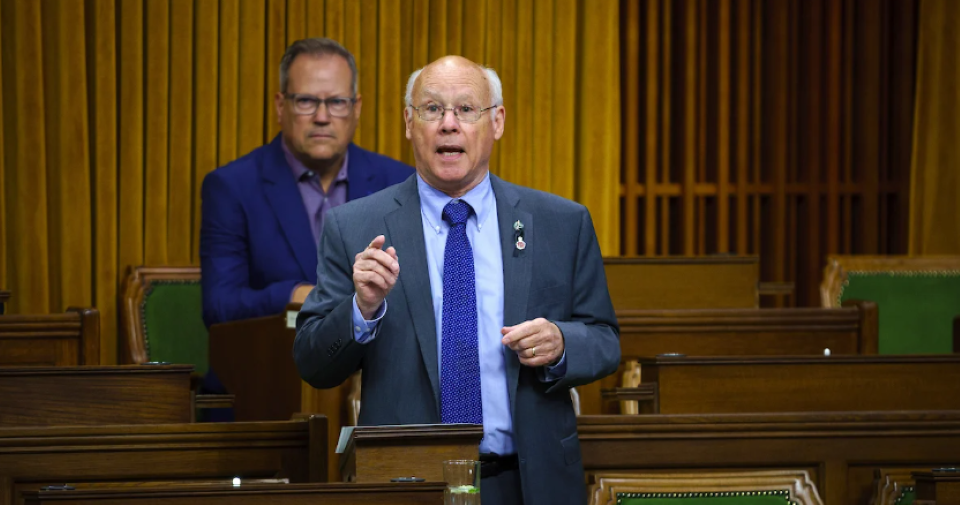The Department of Fisheries and Oceans is being flooded with calls for change after a parliamentary committee examined how the federal agency conducts, interprets and acts on its own science.
The investigation ended with 49 recommendations to address concerns about how DFO science is presented to the fisheries minister and the public before important political decisions are made — particularly those involving B.C. salmon farms or commercial fisheries on either coast.
Insufficient funding for critical research, not incorporating data from Indigenous people, fish harvesters or independent academics, and a lack of transparency about DFO’s scientific research and outcomes also surfaced as key issues in a recent report from the Standing Committee on Fisheries and Oceans (FOPO).
“DFO has excellent scientists,” committee member Liberal MP Ken Hardie told Canada’s National Observer.
“But how [the department] organizes the science, how they process the information and how they actually deliver information to the minister is all suspect, in my view.”
The committee heard from 57 witnesses at nine meetings between April and October last year. Numerous witnesses, independent scientists and academics alleged the fish farm industry — which partners and funds research with DFO’s aquaculture branch — has too much sway over the scientific review process and how DFO managers craft any ensuing advice, especially around studies investigating the potential harms fish farms pose to endangered wild salmon.
However, DFO managers said science advice for decision-making, generated by the Canadian Science Advisory Secretariat’s (CSAS) peer review process, includes policy, collaboration and transparency that prevents conflicts of interest.
Scientist Andrew Bateman from the Pacific Salmon Foundation disagreed.
“DFO’s current science advice aims are laudable on paper, but principles and guidelines are only as good as their implementation,” he told the committee.
A number of critics cited DFO’s contentious finding that fish farms posed little risk to wild salmon migrating past the Discovery Islands as an example of the shortcomings of the CSAS process. Key studies on sea lice and cumulative impacts on wild salmon weren’t completed or included, opposing science or views were suppressed or ignored, and advice outcomes were shaped by senior officials from DFO aquaculture and those with ties to the fish farm industry, they argued.
Hearing committee witnesses only confirmed his original suspicion that DFO’s scientific findings on Discovery Islands’ fish farms “didn’t pass the sniff test,” Hardie said.
He strongly backs the FOPO recommendation calling for an independent audit of the science and process of the Discovery Islands decision to determine the value or accuracy of the findings. He also highlighted the importance of the call to sever DFO’s mandate to support and promote aquaculture, which conflicts with its directive to conserve oceans and fish stocks.
MP Lisa Marie Barron, a committee member and NDP fisheries and oceans critic, said she’s also concerned international aquaculture companies, with no vested interest in the long-term health of coastal communities might be shaping science tied to political decisions.
“We're seeing decisions being made where coastal communities and First Nations are being left behind, and that are focused on profits and not around the best interests of our marine ecosystems,” she said.
The committee heard from numerous witnesses that DFO resources and funding to sustain critical studies or even do regular surveys to gauge the health of fish populations was insufficient and unreliable, Barron noted.
Prominent research scientists like Kristi Miller-Saunders, head of DFO’s Pacific salmon genetics program, are constantly hunting for external funding to continue their studies, Barron said.
Aside from the importance of sustainable research and consistent data, more DFO funding is important to maintain scientific independence from industries such as aquaculture, Hardie stressed.
“To me, science that’s actually paid for by stakeholders doesn’t generate a lot of confidence in what gets produced,” he said.
“He who pays the piper calls the tune.”
Hearing repeated testimony from the commercial fishing sector, industry representatives, scientists and even retired DFO fisheries experts over the dire state of DFO’s fish stock assessments, the committee issued 11 recommendations to the agency to rectify data gaps and provide appropriate vessels and the money necessary to conduct stock surveys — which also include analysis of climate change impacts — vital to making informed fisheries decisions.
A number of recommendations also highlighted the need for DFO to draw on the data and observations that Indigenous Peoples and commercial fishers collect in the territories and waters they know best, Barron said.
“There’s just so much being lost because fish harvesters and First Nations are not being incorporated into the process to understand in a more fulsome way the information required to make decisions,” she said.
“There's just so much information that can be gathered from those who are out on the water every day.”
Conservative MP Mel Arnold, vice-chair of the FOPO committee and who proposed the study, was unavailable for an interview with Canada’s National Observer.





